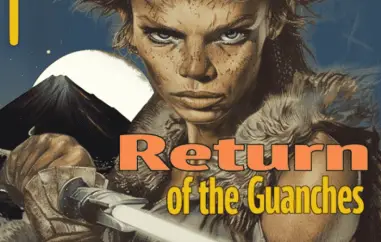Africa International Film Festival in Nigeria
When Nigeria is mentioned in Western media, usually the names of Ebola virus or Boko Haram fundamentalist group are the first to surface on headlines. Hence, few of us know about the history of this West African country, its struggle towards independence, its suffering during the civil war that followed until it has found its safe passage toward democracy and was ranked this year to have the strongest economy in the African continent.
In the art scene, the Nigerian film industry is known as Nollywood (a portmanteau of Nigeria and Hollywood) and is now considered to be the 2nd-largest producer of movies in the world. Nigerian film studios are based in both Lagos and Enugu, forming a major portion of the local economy of these cities.
It is Africa's largest movie industry in terms of the number of movies produced per year. Although Nigerian films have been produced since the 1960s, the country's film industry has been recently aided by the rise of affordable digital filming and editing technologies.
The distribution and viewership of Nollywood production rely on rental of DVDs, Blu-Ray in addition to nationwide broadcast with channels like "Emmanuel TV", that is considered to be one of the most viewed television stations across Africa.
With its inaugural edition in Port Harcourt, Rivers State, Nigeria, the Africa International Film Festival (AFRIFF) was founded in 2010 by Chioma Ude, an ardent film lover and entrepreneur. Her passion for the industry grew more intense after her involvement in the setting of the Nigerian Film and Video Censors Board (NFVCB) in 2006. Ude then went on to produce the 2008 Africa Movie Academy Awards (AMAA) during which she instituted the philanthropic arm of the awards by conceiving the AMAA Charity Benefit. This novel initiative was designed to be an annual Corporate Social Responsibility platform for industry practitioners and stakeholders to give back to society.
Later, in 2009, Chioma was the local producer of the ION International Film Festival (IONIFF), a global touring festival originating from Hollywood, whose aim is to promote global awareness and peace through arts, culture and films. The event was held in Port Harcourt, Rivers State, Nigeria.
In its 4th edition taking place 9-16 November, in Tinapa, Calabar, AFRIFF continues to raise awareness about African Cinema and its tremendous socio-economic. While I was in Tanzania last September, I was contacted by film critic and curator Keith Shiri, the festival's artistic director, to join the jury of documentary films, an honorable task that I accepted with great pleasure.
This particular competition is containing twenty long documentaries including some interesting award-winning works like Finding Fela, a US production that tells the story of Fela Anikulapo Kuti, the Nigerian musician and political activist who passed away in 1997. Fela was known as the creator of the new musical movement known as Afrobeat which he was using to express his revolutionary political opinions against the dictatorial Nigerian government of the 1970s and 1980s. His influence helped to bring a change towards democracy in Nigeria and promoted Pan African politics to the world. This documentary is directed by American director Alex Gibney whose Taxi to the Dark Side received an Oscar for Best Feature-Length Documentary in 2008.
Another politically driven documentary is Mugabe: Villain or Hero? in which filmmaker Roy Agyemang questions whether the Zimbabwean leader and the title character is the demon that the western media portrays or not. Robert Mugabe, now 88 years old and reportedly suffering from prostate cancer, is frequently topping 'world's worst ruler' lists.
The Interpreter (2005), Sydney Pollack's last film starring Nicole Kidman and Sean Penn, featured a negative portrayal of a fictional African ruler with many parallels to Mugabe. Agyemang is the British-born son of Ghanaian parents who had been contemporaries of the highly-regarded Kwame Nkrukmah, the Ghanaian politician who oversaw the nation's independence from British rule in 1957.
Documentaries made in or about Africa are always powerful tools to reflect the struggle of the African people and their fights for human rights, democratic nations and freedom. The first documentary took me to a flashback In February 1991, the banning of a TV channel called TéléFreedom ignited the streets of La Réunion, the calm island located in the Indian Ocean, east of Madagascar and southwest of Mauritius. Being one of the twenty-seven overseas regions of France, the neighborhoods of La Réunion witnessed violent riots with angry young people throwing stones, burning cars and looting supermarkets. The angry youth thought that Télé Freedom was sort of a fresh breath of air in the corseted city entangled by mass unemployment, precariousness, and the stigma of a perceived injustice in a deeply unequal society.
Twenty years later, a new documentary called Broken Horizon returned to interview the people who took parts of these incidents to shed the lights not only on the past but also on the present where 60% of the population is currently unemployed with an age ranging from 15 to 25 years. The director of this documentary is Anaïs Charles-Dominique who is her mid-thirties and working as a journalist and filmmaker. After obtaining his baccalaureate in social economy, she became a correspondent in South Africa for two years then moved to La Réunion where she created this film.
The second documentary revives incident that took place in August 2012, mineworkers in one of South Africa's biggest platinum mines began a wildcat strike for better wages. Six days later the police used live ammunition to brutally suppress the strike, killing 34 and injuring many more. Using the point of view of the Marikana miners, Miners Shot Down follows the strike from day one, showing the courageous but isolated fight waged by a group of low-paid workers against the combined forces of the mining company Lonmin, the ANC government and their allies in the National Union of Mineworkers.
Incredibly powerful and truly shocking, the footage of what is a cold blooded massacre is astonishing. The documentary shows the whole incident from literally all sides. The forensic care with which both the immediate circumstances and the overall political context are explained make riveting viewing. It is impossible not to be both appalled and deeply moved by not only the human injustice but also the political tragedy which Marikana represents. It is an extremely important document not simply to understand the specifics of this incident but also to understand the profound challenges for South Africa.
Behind this powerful piece is Rehad Desai a director who first studied history at the University of Zimbabwe where he lived for three years. In 1996, he entered the TV and film industry as a producer/director and has since focused much of his energy on documentary productions, much of which has received critical acclaim . In 1997 he completed Masters in Social History at the University of the Witwatersrand. In 2000 he completed a postgraduate degree in TV and film producing through AVEA, in 2009 he completed a course in European Documentary Production through Eurodoc. He currently runs Uhuru Productions a film and TV company producing documentary and drama work and is the Festival Director of the Tri Continental Film Festival for the last 10 years and the Conference Director of the People to People International Documentary Conference.









































